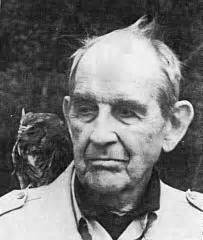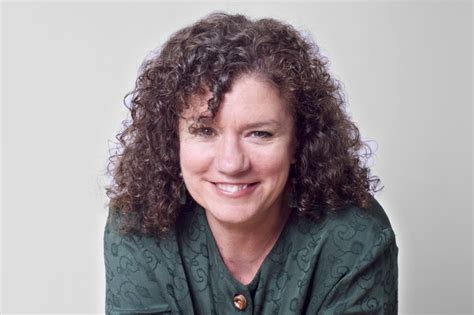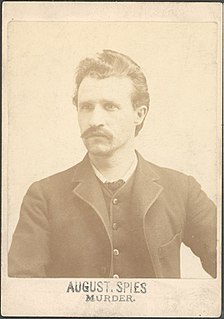Top 1200 Death Sentence Quotes & Sayings - Page 3
Explore popular Death Sentence quotes.
Last updated on November 19, 2024.
Birth leads to death, death precedes birth. So if you want to see life as it really is, it is rounded on both the sides by death. Death is the beginning and death is again the end, and life is just the illusion in between. You feel alive between two deaths; the passage joining one death to another you call life. Buddha says this is not life. This life is dukkha - misery. This life is death.
There is no single best kind of death. A good death is one that is "appropriate" for that person. It is a death in which the hand of the way of dying slips easily into the glove of the act itself. It is in character, ego-syntonic. It, the death, fits the person. It is a death that one might choose if it were realistically possible for one to choose one's own death.
Native speakers of a language know intuitively whether a sentence is grammatical or not. They usually cannot specify exactly what is wrong, and very possibly they make the same mistakes in their own speech, but they know-unconsciously, not as a set of rules they learned in school-when a sentence is incorrect.
The book was long, and difficult to read, and Klaus became more and more tired as the night wore on. Occasionally his eyes would close. He found himself reading the same sentence over and over. He found himself reading the same sentence over and over. He found himself reading the same sentence over and over.
When I started graduate school we did this publishing class where we learned about submitting and read interviews with editors from different magazines. A lot of them said they got so many submissions that unless the first page stuck out or the first paragraph or even the first sentence they'll probably send it back. So part of my idea was that if I have a really good first sentence maybe they'll read on a bit further. At least half, maybe more of the stories in Knockemstiff started with the first sentence; I got it down then went from there.
I think '300 Arguments' is a real tiny wallop of a book. It looks very slim, and at first, each little two-sentence or one-sentence thing kind of stands on its own, but again, as you read it, you get sucked into the momentum of it, and the whole of it is much larger than the sum of its parts in a really beautiful way.
The greatest mystery in life is not life itself, but death. Death is the culmination of life, the ultimate blossoming of life. In death the whole life is summed up, in death you arrive. Life is a pilgrimage towards death. From the very beginning, death is coming. From the moment of birth, death has started coming towards you, you have started moving towards death.
But sometimes when I was starting a new story and I could not get it going, I would sit in front of the fire and squeeze the peel of the little oranges into the edge of the flame and watch the sputter of blue that they made. I would stand and look out over the roofs of Paris and think, 'Do not worry. You have always written before and you will write now. All you have to do is write one true sentence. Write the truest sentence that you know.' So finally I would write one true sentence, and then go on from there.
There is another side to death. Whether death happens through an act of violence to a large number of people or to an individual, whether death comes prematurely through illness or accident, or whether death comes through old age, death is always an opening. So a great opportunity comes whenever we face death.
Most people write the same sentence over and over again. The same number of words-say, 8-10, or 10-12. The same sentence structure. Try to become stretchy-if you generally write 8 words, throw a 20 word sentence in there, and a few three-word shorties. If you're generally a 20 word writer, make sure you throw in some threes, fivers and sevens, just to keep the reader from going crosseyed.
My brother the vampire, whose kiss was a slow death sentence, had a stable and loving relationship with a girl who was crazy about him. By contrast, I could barely talk to a woman, at least about anything pertaining to a relationship. Given that my only long-term girlfriends had faked their own death, died, and broken free of enslaving enchantments to end the relationship, the empirical evidence seemed to indicate that he knew something I didn't. Keep your life tonight, Harry. Complicate it tomorrow.
In our country, [habeas corpus ] means that if you've been sentenced and convicted in a state court, either to death or to some other kind of sentence, you have the right to petition a federal court to review what happened to you. And until [Bill] Clinton, you had three, four, five, even more years I collect records of people who have been on death row for eight, 10, 12, 14 years - this is before Clinton - who finally got a decent lawyer, usually a pro bono lawyer, and an investigator, and were able to find out - they - they're but approved that they're - that they were innocent.
There is a slovenly disrespect for truth and reality that has infected and cross-infected the arts; the values of entertainment are relentlessly in the ascendant, to the extent that it becomes virtually impossible to write a naturalistic fictional sentence without feeling that the fabric of that sentence is already compromised.
I turn sentences around. That's my life. I write a sentence and then I turn it around. Then I look at it and I turn it around again. Then I have lunch. Then I come back in and write another sentence. Then I have tea and turn the new sentence around. Then I read the two sentences over and turn them both around. Then I lie down on my sofa and think. Then I get up and throw them out and start from the beginning.
There is no single formula for good sentence. An invisible integument that gives the sentence wholeness and musicality, sometimes. But other times, the formula is almost purely one of context. And yet other times, of sheer precision of meaning. This is a good sentence: "Just as he was settling into the warm mud of alcoholic gloom, Shrike caught his arm." "Warm mud of alcoholic gloom" is exact and right and accurate.




















































